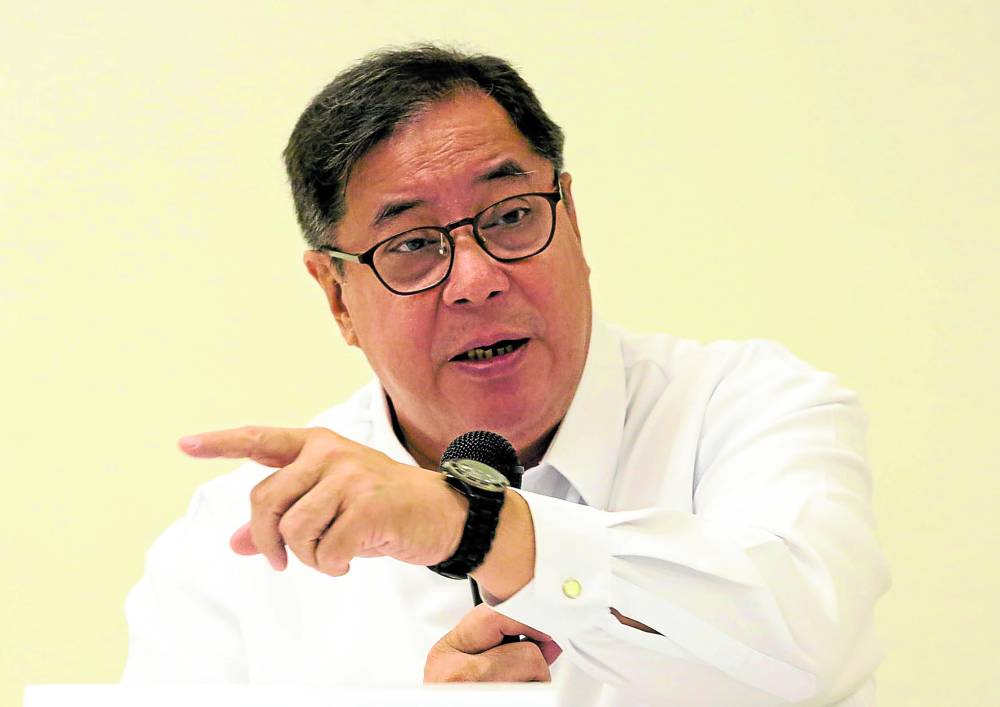
Multi-level marketing doctors will face charges, according to the stern warning from Department of Health Secretary Teodoro Herbosa | FILE PHOTO
MANILA, Philippines — Apart from the revocation of their licenses, medical experts confirmed to be engaging in multi-level marketing schemes with pharmaceutical companies may also face charges, according to Health Secretary Ted Herbosa.
During the Senate panel on health and demography’s hearing on Monday, Herbosa was questioned as to what would happen to physicians proven to be guilty of conniving with pharmaceutical companies in terms of prescribing medicines to patients.
READ: Tulfo wants ban, recall of ‘ineffective’ generic medicines
“Number one, we can file charges. Kasi kapag nakita yung… kahit ethical [ay] pwede pong iakyat ‘yan sa Board of Medicine for revocation of license, suspension of license. Kung sa hospital namin — Department of Health (DOH) hospital – pwede kong iakyat sa Ombudsman for cases against these public officials,” said Herbosa.
(Number one, we can file charges. Even if it’s an ethical offense, we can raise it with the Board of Medicine for revocation or suspension of the license. If they are from a DOH hospital, we can file a case against these public officials with the Ombudsman.)
Under the 2019 Code of Ethics of the Medical Profession, physicians are strongly tasked not to take advantage of the health product industry, nor should they allow themselves to be exploited in this relationship.
READ: Doctors accepting gifts from drug firms may be suspended, lose license
It also states that physicians should not solicit favors from biopharmaceutical and medical device companies for personal interest or gain.
In the same hearing, Senator Raffy Tulfo presented a list of physicians allegedly working with Bell-Kenz Pharma Inc. in what he alleges to be a “multi-level marketing scheme.”
These physicians supposedly “receive” luxury items and extravagant trips in exchange for prescribing the firm’s medicines.
The DOH said the agency is investigating reports that some physicians are committing such practices.
Incentives
In the same hearing, Senator Jinggoy Estrada questioned Dr. Viannely Berwin Flores — one of Bell-Kenz’s former investors and officers – if he ever received incentives from the pharmaceutical company.
According to Flores, he was not given incentives, but he did receive dividends, given that he was a former shareholder of Bell-Kenz.
“When you were a stockholder of Bell Kenz and you were prescribing medicines that are being manufactured by your own company, don’t you think that is unethical?” Estrada asked, to which Flores answered no.
Professional Regulation Commission Commissioner Jose Cueto Jr., however, sees a clear “conflict of interest” in the situation.
Senator Raffy Tulfo, who was also present during the hearing, then asked Cueto what charges can be filed against medical practitioners involving themselves in such practices.
“The charge actually, if a complaint is filed, will be unethical practice. As it is said in Republic Act No. 2382, violation of the code of ethics for the medical profession is included as one of the grounds for reprimand, suspension, or revocation of license,” said Cueto.
Bell-Kenz chairperson Luis Raymond Go on Tuesday admitted before the Senate that they are “giving incentives” to some of its doctor partners, but he denied allegations that the firm is involved in so-called “multi-level marketing schemes.”


